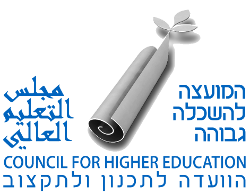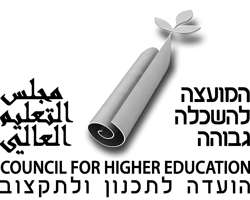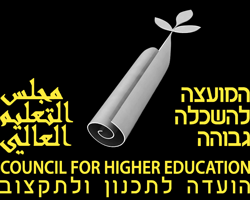Encouraging Innovation in Education
For the First Time: The CHE has Approved a Program to Integrate Practical Enrichment into Bachelor’s Degree Studies
The Program is a Joint Initiative of the CHE, the Edmond de Rothschild Fund, the Aluma Organization, and the National Student Union
- The program’s objective is to improve students’ preparation for and integration into the employment market.
- As part of this program, academic institutions will integrate practical enrichment seminars as part of their course requirements, for which students will receive credit hours toward their degree. The program will operate primarily in the fields of humanities and social sciences.
- This practical enrichment can take place in a wide variety of academic fields and organizations, including: Practical enrichment in political and government studies in the Knesset’s and governmental organs, practical enrichment in sociology and social associations, practical enrichment in East Asian studies, and in marketing chains specializing in the Chinese market, and more.
Chair of the PBC, Prof. Yaffa Zilbershats: “As part of implementing the ‘New Campus,’ the PBC has set promoting innovation in instruction and teaching and adjusting it to ever-changing global needs as a central goal in its work plan. Practical enrichment will enable students to be active during the course of their studies to optimally familiarize themselves with the various needs of the business world while imparting tools and skills that will prepare them to deal with the many challenges they will face in the market.”
Eli Buch, Director of Philanthropy at the Edmond de Rothschild Foundation: “Many young people, primarily from peripheral populaces, have difficulty translating their academic education into suitable employment. The Edmond de Rothschild Foundation has worked for years to build bridges between higher education and employment, among other ways, by promoting a culture of internship in Israel i academia. We welcome the CHE’s approval of the plan to integrate practical enrichment into academia while building partnerships that will facilitate dissemination in Israel of effective practices that are prevalent the world over.”
i academia. We welcome the CHE’s approval of the plan to integrate practical enrichment into academia while building partnerships that will facilitate dissemination in Israel of effective practices that are prevalent the world over.”
Shlomi Yechiav, Chair of the Student Union: “This is a critical decision that connects academia to the professional arena and gives students significant tools in preparation for the day after they receive their degrees. Israeli academia needs to be dynamic and develop together with reality outside the campus. We here at the Student Union will continue to push toward and seek to increase the relevance of higher education in Israel. I commend the CHE and all of its partners in this endeavor for stepping up and leading this important initiative for the benefit of all students.”
Aluma CEO, Yifat Sela: “A follow-up study that we conducted showed that studies that include practical enrichment improve the likelihood of finding employment suitable to one’s education by 31%. This new initiative will enable thousands of young people to benefit from this advantage.”
The encouragement of innovation in education and learning has been defined as a central goal in the CHE’s and PBC’s multiyear plan. This educational innovation includes an understanding that students need to complete their studies with a toolbox that will help them integrate into the job market and deal with the many challenges they face.
In this framework, the PBC and the CHE recently approved a new program to encourage institutions to develop courses that integrate practical enrichment seminars into PBC-financed academic institutions that offer bachelors’ degrees. The program will commence in the coming 2019/20 academic year. The program is a joint initiative of the CHE, the Aluma Organization, the Edmond de Rothschild Foundation, and the National Student Union. The program’s budget is NIS 24 million over three years.
This joint initiative will encourage institutions of higher education to develop courses that integrate academic theory with application and experience. As part of the program, budgeted institutions will be incentivized to develop an institutional mechanism that will be in charge of learning that merges practical enrichment into academic education, including courses that integrate hands-on experience, which will be offered to students during the course of their undergraduate studies, primarily in the humanities and social sciences.
These courses will be offered to students in fields that do not include apprenticeships, mandatory internships and clerkships, or practical training as part of their degree requirements, and students will be awarded credit hours for them. These courses will constitute part of the electives offered to students as part of their undergraduate degree studies.
The course offering that can be included in this program is broad and varied, as is the variety of educational organizations, for example: Practical enrichment in political and government studies in the Knesset’s and governmental organs, practical enrichment in sociology and social associations, practical enrichment in East Asian studies, and in marketing chains specializing in the Chinese market, practical enrichment in cultural studies by putting on international film festivals, cultural enrichment through economic studies in large financial entities, and practical enrichment in Bible studies at the Bible Lands Museum.
The Aluma Organization will serve as the entity that leads the program in the field: The operator, consultant, and entity in charge, inter alia, of coordinating all applications and proposals from institutions as well as their approval together with the CHE-PBC, oversight and control over courses that will be approved for implementation at these institutions, providing an infrastructure for all of these institutions to run these courses, including professional training for institutional staff, assistance in identifying locations for internships, maintaining information systems, and assessment of the entire program.
Academic institutions that implement the program will ensure that the location offering the practical experience and skills acquired during the course of gaining this experience are suitable for the student’s field of studies, with the goal of providing a foundation for suitable future employment, while being responsible that students receive practical experience in occupations and skills directly relevant to their field of academic studies.


